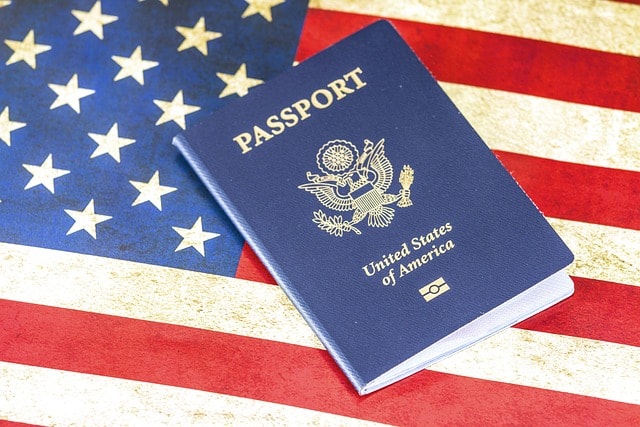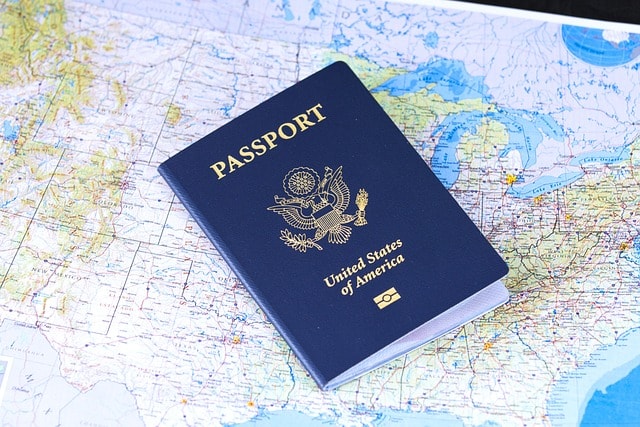What is a Sponsor For A Visa: A Comprehensive Guide

Introduction
Visa sponsorship is a crucial aspect of the immigration process for foreign nationals seeking to live and work in a new country. It involves a person or organization taking responsibility for the visa applicant and supporting their entry and stay in the host country.
In this comprehensive guide, we’ll delve into the various aspects of visa sponsorship, including its meaning, the different types of sponsorship, and the responsibilities of both sponsors and visa applicants.
What is Visa Sponsorship?

Visa sponsorship is the process by which a person or organization vouches for a foreign national’s entry and stay in a country. The sponsor assumes specific responsibilities and obligations towards the visa applicant, such as providing financial support, ensuring compliance with immigration laws, and facilitating the visa application process.
Types of Visa Sponsorship
There are several types of visa sponsorship, each catering to specific categories of visa applicants and their purposes for entering a country.
Employment Visa Sponsorship
Employment visa sponsorship is the most common type, where an employer sponsors a foreign national to work in their organization. The employer must demonstrate a genuine need for the foreign worker’s skills and that they cannot find a suitable candidate within the local workforce.
Examples of employment visas include the H-1B visa in the United States and the Skilled Worker visa in the United Kingdom.
Family Sponsorship
Family sponsorship involves a family member, such as a spouse, parent, or child, sponsoring their relative’s visa application. The sponsor must prove their relationship with the visa applicant and show that they have the financial means to support them during their stay in the country.
Examples of family-based visas include the spouse visa and the family reunification visa.
Student Visa Sponsorship
Educational institutions can sponsor international students to study in their country. The institution must provide evidence of the student’s enrollment and demonstrate that they have sufficient funds to cover their tuition and living expenses.
Examples of student visas include the F-1 visa in the United States and the Tier 4 visa in the United Kingdom.
Related Terms: Immigrant visas, immigration services, visa sponsor, visa sponsorship means, employment visa status, employment sponsorship, work visa sponsorship, family sponsorship visa
Responsibilities of Visa Sponsors
Visa sponsors have certain obligations and responsibilities towards the visa applicant and the immigration authorities. These include:
- Providing financial support: Sponsors must demonstrate that they have the financial means to support the visa applicant during their stay in the country. This may involve providing proof of income, assets, or savings.
- Ensuring compliance with immigration laws: Sponsors must ensure that the visa applicant complies with the terms and conditions of their visa, such as maintaining a valid passport, not engaging in unauthorized work, and leaving the country before their visa expires.
- Facilitating the visa application process: Sponsors may need to provide supporting documents, such as employment contracts, proof of relationship, or financial statements, to facilitate the visa application process.
- Notifying authorities of any changes: Sponsors must inform immigration authorities of any changes in the visa applicant’s circumstances, such as a change of address, employment, or marital status.
Responsibilities of Visa Applicants
Visa applicants also have certain responsibilities and obligations when being sponsored for a visa. These include:
- Providing accurate information: Visa applicants must provide truthful and accurate information in their visa application and during interviews with immigration officials.
- Maintaining visa conditions: Visa applicants must comply with the terms and conditions of their visa, such as not engaging in unauthorized work, maintaining a valid passport, and leaving the country before their visa expires.
- Informing sponsors of any changes: Visa applicants must keep their sponsors informed of any changes in their circumstances, such as a change of address, employment, or marital status.
The Visa Sponsorship Process
The visa sponsorship process varies depending on the visa type and the application country. However, the general steps involved in the process include:
- Determining eligibility: The sponsor and visa applicant must ensure they meet the eligibility criteria for the specific visa category they are applying for.
- Gathering necessary documentation: The sponsor and visa applicant must collect all the required documents, such as passport copies, educational certificates, employment contracts, and financial statements.
- Submitting the visa application: The visa applicant must complete and submit the visa application form, along with the necessary supporting documents and fees.
- Attending interviews: The visa applicant may need to attend an interview with immigration officials to assess their eligibility and the genuineness of their purpose for entering the country.
- Awaiting a decision: The immigration authorities will review the visa application and make a decision on whether to grant or deny the visa.
Visa Sponsorship Letter
A visa sponsorship letter is a document the sponsor provides to support the visa applicant’s application. The letter should include the following information:
- The sponsor’s relationship with the visa applicant
- The purpose of the visa applicant’s visit or stay in the country
- The duration of the visa applicant’s stay
- The sponsor’s financial capacity to support the visa applicant during their stay
- The sponsor’s commitment to ensuring the visa applicant’s compliance with immigration laws and departure from the country upon visa expiry
Common Visa Sponsorship Fees
Visa sponsorship often involves various fees that must be paid by either the sponsor or the visa applicant.
Some common fees include:
- Visa application fee: This is the fee charged by the immigration authorities for processing the visa application.
- Sponsorship fee: Some countries may charge a fee for sponsoring a visa applicant.
- Immigration health surcharge: Some countries require visa applicants to pay a fee to cover their healthcare costs during their stay.
- Biometric enrolment fee: Visa applicants may need to pay a fee for providing their biometric information, such as fingerprints and photographs.
Frequently Asked Questions (FAQs)
1. Can a visa applicant sponsor themselves?
In most cases, a visa applicant cannot sponsor themselves. They require a separate individual or organization to sponsor their visa application.
2. Can a sponsor withdraw their sponsorship?
Yes, a sponsor can withdraw their sponsorship at any time by notifying the immigration authorities. However, this may have consequences for the visa applicant, such as the cancellation of their visa.
3. Can a visa applicant change sponsors?
Yes, a visa applicant can change sponsors, but they must inform the immigration authorities and provide evidence of the new sponsorship. The new sponsor must also meet the eligibility criteria for sponsoring a visa applicant.
4. How long does the visa sponsorship process take?
The duration of the visa sponsorship process varies depending on the type of visa, the country of application, and the volume of applications received by the immigration authorities. It can take anywhere from a few weeks to several months.
Conclusion
Visa sponsorship is a vital component of the immigration process, enabling foreign nationals to live and work in a new country. Sponsors play a crucial role in supporting visa applicants and ensuring their compliance with immigration laws.
By understanding the different types of sponsorship, the responsibilities of sponsors and visa applicants, and the visa sponsorship process, both parties can navigate the complexities of immigration with greater ease and success.
Related Terms: employer sponsorship, lawful permanent residents, employment based immigrant visa, work visas, sponsoring employer, eligible family members, legal permanent resident, both the employer













